| | | | | | | | | | | Axios World | | By Dave Lawler ·Mar 07, 2022 | | Welcome back to Axios World. - Tonight's edition (1,908 words, 7 minutes) begins in Kyiv.
Heads up: Our new podcast on Putin's invasion is live. In episode 1, I discuss Putin's path to this moment, and my colleague Jonathan Swan reflects on his two interviews with Zelensky. | | | | | | 1 big thing: Ghost of Grozny hangs over Putin's assault on Kyiv | 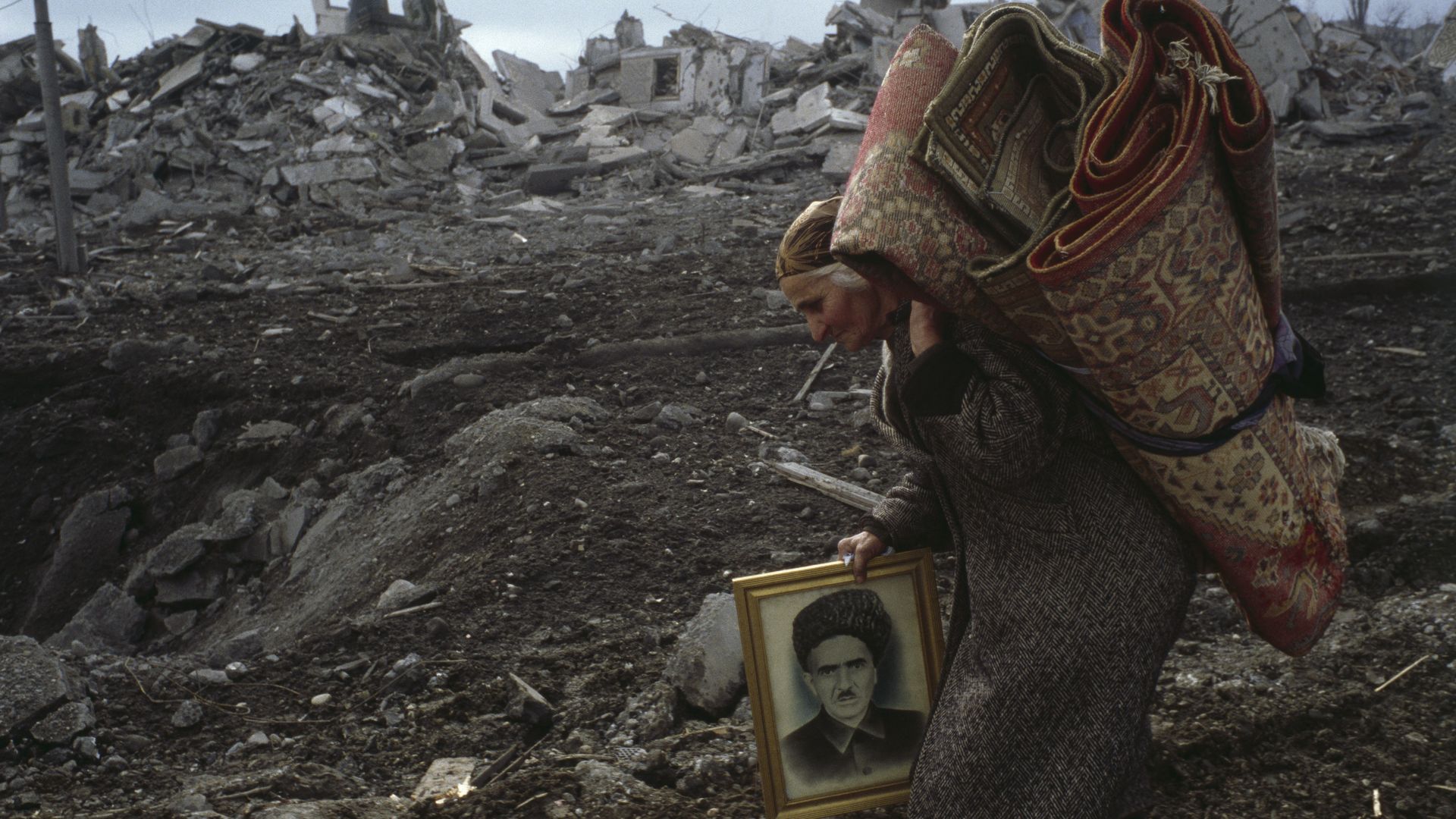 | | | The aftermath, in Grozny. Photo: Antoine Gyori/Sygma via Getty Images | | | | Vladimir Putin likely won't be able to take Kyiv without destroying much of the city and subjecting its population to a brutal siege, military analysts say. But Putin has a track record of doing just that. Why it matters: U.S. and Ukrainian officials believe that Putin's primary focus remains on Kyiv, even after his plans to swiftly take the city and force a capitulation from the government were thwarted. The city's defenders — soldiers and civilians alike — are very hostile to the invaders and bracing for a fight. On the ground: Residents of Kyiv are stocking up on food, medicine, and other essentials in preparation for a siege, says Parliament member Maryan Zablotskyy from President Volodymyr Zelensky's party and who remains in the city. - In addition to the army and police force, around 30,000 Kyiv residents volunteered to defend the city and have received guns, he says.
- "So basically, Kyiv is turning into a fortress, and everybody is expecting a major assault on Kyiv," he tells Axios.
12 days into the war, there has been fighting on the city's outskirts and bombing closer to the center, but a senior Pentagon official told reporters today that "the main advance is still stalled outside the city." Flashback: Michael Kofman, a leading expert on Russia's military at the Center for Naval Analyses, says that watching an enormous Russian convoy move slowly toward Kyiv to help encircle the city is giving him "very bad Grozny 1999 vibes" — a reference to the notoriously brutal Russian bombardment and capture of the Chechen capital. - By the time Putin, newly installed as president, declared the city "liberated," it was by the UN's estimation "the most destroyed city on Earth."
- Kofman says Putin's bombardments of Grozny and Aleppo in Syria suggest he would be willing to "level" Kyiv. "If you don't think that's true you haven't been following Vladimir Putin's track record."
- Kofman is expecting a massive artillery and air assault on the city once the Russian forces are in position.
Yes, but: "Even if they try and reduce the city to rubble, you can still fight from rubble if you really want to," says Rob Lee of the Foreign Policy Research Institute and who is another close observer of the Russian war effort. - He says encircling Kyiv will require a massive Russian force that could then be vulnerable to counterattacks. Troops that enter the city would be at a disadvantage in street-by-street fighting.
- "If you're trying to occupy a country that doesn't want to be occupied, your prospects are always going to be poor," Lee says.
- He also thinks the Russians will be operating on a timeline, both because of the difficulties of sustaining and supplying their operation and because of domestic pressure over the war and its economic fallout.
What to watch: The Pentagon official said Russian forces are trying to "seal off the eastern part of the country" to prevent the large Ukrainian force there from joining the defense of Kyiv. - Some Russian forces fighting in the east could also join the effort to encircle Kyiv once they have taken Kharkiv, the official added.
- The U.S. and European countries are working to provide weapons and other supplies while it's still possible to get them into the capital.
- Even killing or capturing Zelensky would be unlikely to end the battle. Secretary of State Tony Blinken said Sunday that Ukraine has a "continuity of government" plan.
Driving the news: At least four civilians attempting to evacuate the Kyiv suburb of Irpin were killed by Russian shelling on Sunday. On Monday, at least 13 civilians were reportedly killed when a bakery in another suburb was struck. - The Pentagon official said Russia has now deployed "nearly 100%" of its amassed forces into Ukraine and launched over 625 missiles.
The bottom line: Like Ukraine as a whole, Kyiv would be difficult to take and more difficult to hold. But if there is a prolonged battle for Kyiv, the Ukrainian people will bear the brunt of the suffering. |     | | | | | | 2. State of the diplomacy | 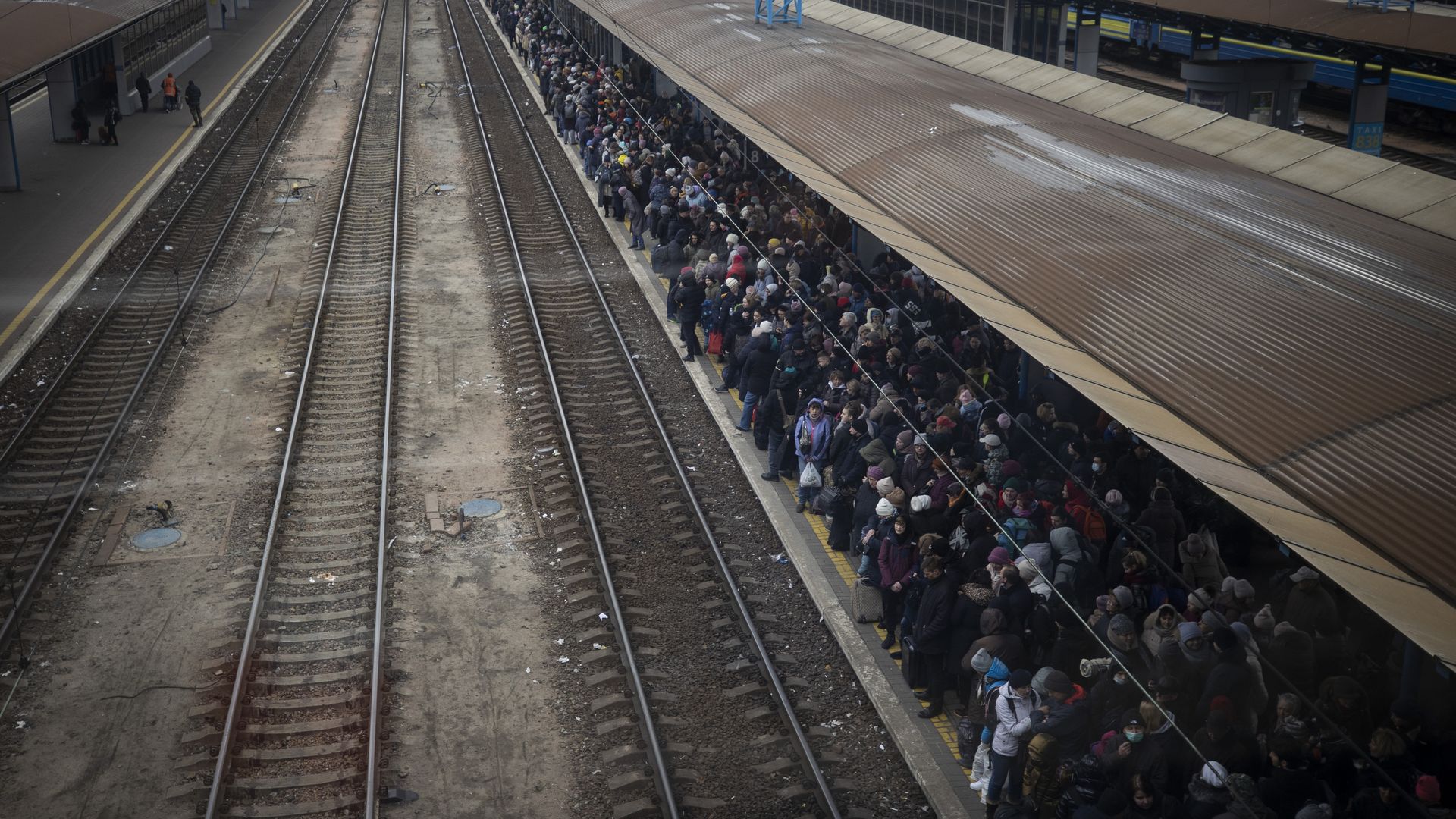 | | | Civilians attempt to evacuate Kyiv today. Photo: Emin Sansar/Anadolu Agency via Getty Images | | | | The Kremlin today outlined its most explicit set of demands for a peace deal. What they're saying: Putin spokesman Dmitry Peskov said Ukraine would have to amend its constitution to rule out membership in any "blocs" (a probable reference to NATO and the EU), recognize Crimea as Russian, and recognize the separatist "republics" in eastern Ukraine as independent. - Peskov did not mention regime change or Putin's demand that Ukraine "demilitarize," saying the war would "stop in a moment" if Ukraine meets those three conditions.
The big picture: All three were non-starters for Kyiv before the war, and likely still are. - But if you take Peskov at his word — and depending on where the borders in the east would be drawn — a war that appears likely to drag on for years could end immediately if Ukraine agrees to essentially codify the pre-war status quo.
But it would be unwise to take Peskov at his word. - Christo Grozev of Bellingcat reports that, in private, the Russians are also demanding that a pro-Russia prime minister be installed.
- And Zablotskyy, the Ukrainian MP, says the Russians have also been demanding that Ukraine give up all of its arms and arrest certain individuals. He's skeptical that Putin is at all serious about negotiations at this juncture.
Driving the news: A third round of peace talks on the Ukraine-Belarus border ended today with no major breakthroughs but some progress on the "logistics of humanitarian corridors," according to a Zelensky adviser. State of play: Ukrainian officials say Russia has not followed through on a promise to facilitate the safe evacuation of civilians from besieged cities such as Mariupol, writes Axios' Zach Basu. - The Kremlin announced new humanitarian corridors today to transport civilians to Russia and Belarus, which Ukraine dismissed as an "immoral" stunt.
- Negotiations on a potential ceasefire and broader political solution will continue.
What's next: Russia's Foreign Minister Sergei Lavrov will meet with Ukraine's Foreign Minister Dmytro Kuleba in Turkey on Thursday for the highest-level talks since the invasion began, according to Turkish Foreign Minister Mevlüt Çavuşoğlu. |     | | | | | | 3. Biden looks to dictators for help with oil squeeze |  President Biden is privately debating a trip to Saudi Arabia this spring to help unleash more oil more quickly to pull down gas prices, officials tell Axios' Hans Nichols. Why it matters: Biden promised to treat Crown Prince Mohammed bin Salman as a "pariah" over the murder of Jamal Khashoggi. But with oil prices already rising fast even before a potential embargo on Russia, the administration may be recalibrating its emphasis on human rights as it searches for alternative supplies. - The White House is also in discussions with aides to Venezuelan President Nicolás Maduro about easing sanctions to allow for more oil exports, the Washington Post reported yesterday.
- One factor keeping oil prices from spiking even higher is anticipation that the U.S. will soon seal a deal with another adversary: Iran. That would allow Tehran to begin to ramp up oil exports — and, to the chagrin of Iran hawks in D.C., refill the national coffers.
- However, Russia is now complicating efforts to complete that deal with demands of its own.
State of play: Top European leaders said Monday that they recognize the need to reduce the continent's dependence on Russian energy but stressed that an immediate embargo would not be feasible, Zach writes. Biden could still move unilaterally. |     | | | | | | A message from Axios | | Win the race for (remote) talent | | |  | | | | Reach over 750,000 smart professionals in the fastest growing cities in America. Axios Local now has job boards to get your openings in front of qualified candidates. Post your job opportunities on Axios Local. | | | | | | Bonus: Where in the World? | | In 1920, there were 10 metro areas around the world with at least 2 million people, per a UN report. They are labeled 1-10. - By 2020, the top 10 all had metro areas of around 20 million or more. They are labeled A-J. Just one city (labeled 4/A) makes both lists.
- Can you name all 19 cities? Scroll to the bottom for the answers.
Notes: #6 is less a city than a region, and locations are approximate. Sorry it's so messy... |     | | | | | | 4. Ukraine news roundup |  Data: Institute for the Study of War. Map: Jared Whalen/Axios 1. Efforts to push the Biden administration into facilitating the transfer of fighter jets to Ukraine appear increasingly doomed to fail for both technical and geopolitical reasons, Zach writes. - The jets in question are Soviet-era MiG-29s possessed by Poland, which Ukrainian pilots are capable of operating. The U.S. would, in turn, backfill Poland's fleet with American-made F-16s.
- The White House says it's not opposed, but that there are a number of logistical hurdles. Those include how the planes would actually enter Ukraine's heavily contested airspace, and whether Poland itself is willing to risk provoking Russia.
- The big picture: The risk of being deemed a "co-combatant" by Russia continues to permeate every U.S. and NATO decision about weapons transfers and intelligence sharing.
2. The number of refugees fleeing Ukraine has topped 1.5 million in 10 days, making this exodus the fastest-growing refugee crisis in Europe since World World II, the UN refugee agency said on Sunday. 3. The BBC and Bloomberg have suspended operations in Russia, while CNN, CBS, and ABC ceased broadcasting in the country after lawmakers approved new legislation Friday that threatens to imprison journalists and individuals for up to 15 years if they publish what Moscow deems to be "fake" information about Russia's invasion of Ukraine, Axios' Sarah Fischer reports. - Inside Russia, independent news agencies are being yanked off the air, forcing journalists to flee the country.
4. Police detained over 4,300 protesters across Russia on Sunday per OVD-Info, a Russia-based human rights monitoring group. |     | | | | | | 5. South Korea's bitter campaign draws to a close | 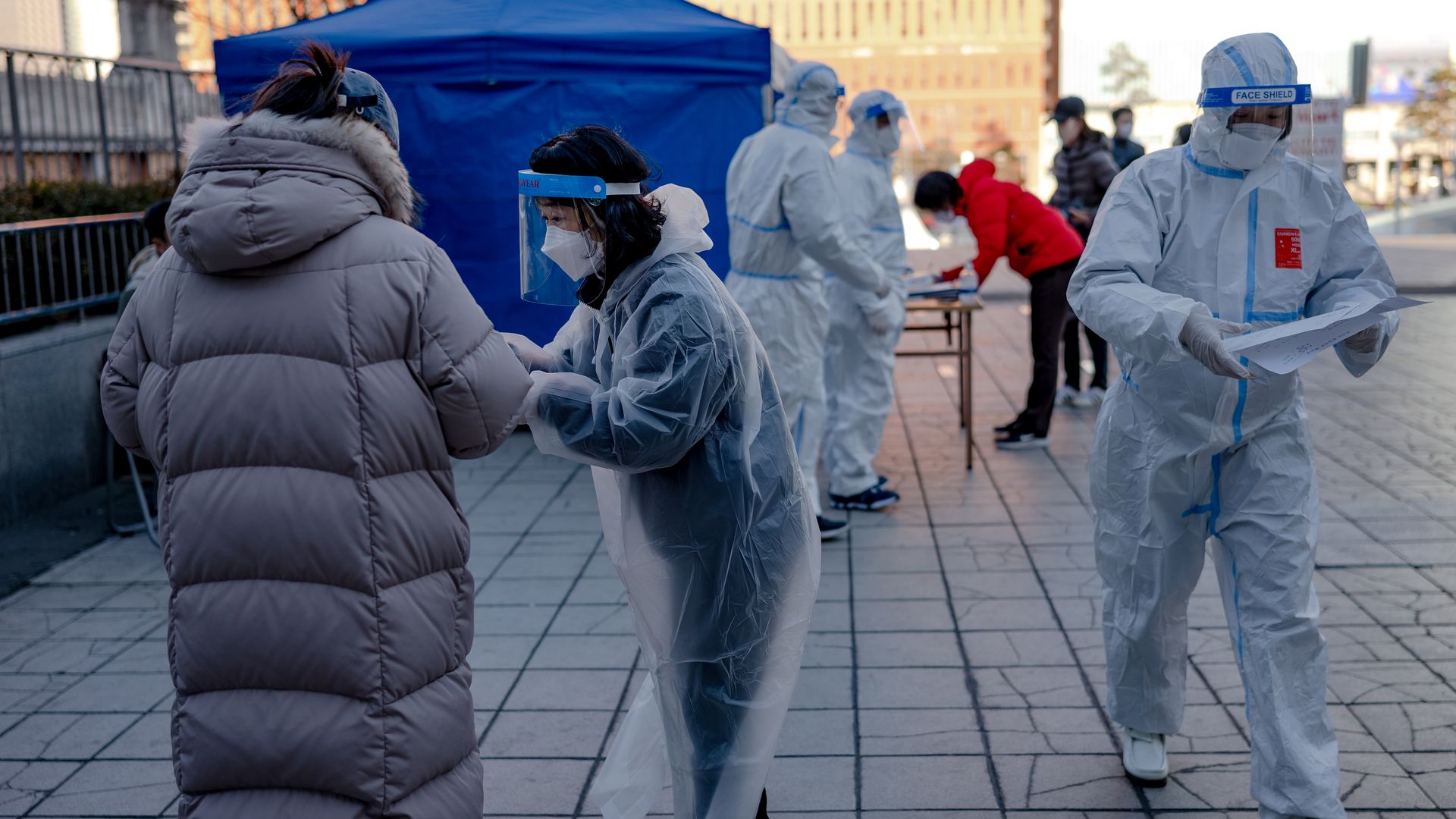 | | | COVID-positive voters cast their ballots in Seoul. Photo: Chris Jung/NurPhoto via Getty Images | | | | The leader of South Korea's ruling party was attacked and hospitalized today while campaigning ahead of Wednesday's presidential election, in an episode that seemed to epitomize the dark tone of the campaign. State of play: Moon Jae-in, the center-left incumbent, can't run due to term limits. The leading candidates to replace him are neck-and-neck in the polls, but both are quite unpopular and have struggled to shake off scandals. - 37% of the country voted early, but the process was marred by controversy. People who were let out of COVID quarantine to vote faced long lines, and some voters were given used ballots, per Reuters.
What to watch: If the conservatives return to power, Seoul's line toward North Korea will harden after Moon's attempts at détente. In South Korea, a bigger issue on the campaign trail has been sky-high home prices. |     | | | | | | 6. Taiwan and China both bristle at Ukraine comparison | 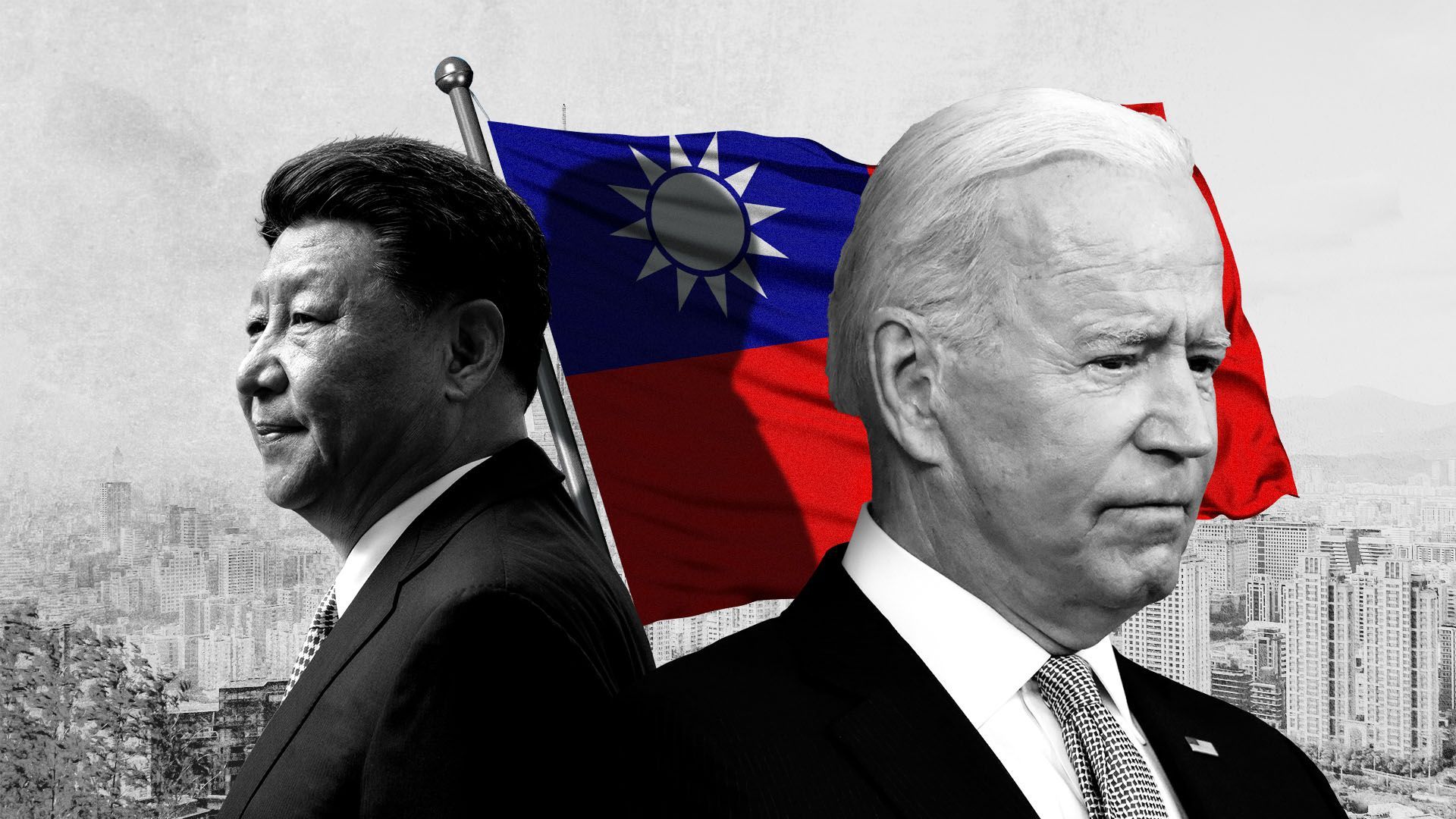 | | | Photo illustration: Sarah Grillo/Axios. Photos: Anna Moneymaker, Yorgos Karahalis/Bloomberg via Getty Images | | | | Officials in China and Taiwan don't agree on much, but they're both insisting that the situation in Ukraine has nothing to do with Taiwan — for very different reasons. What they're saying: - Chinese Foreign Minister Wang Yi said the situations were "not at all comparable" because the China-Taiwan dispute is "domestic" (Beijing considers Taiwan part of its territory).
- Meanwhile, Taiwanese officials say Taiwan is harder to invade and more geopolitically important than Ukraine, as an island and a leading semiconductor producer, per Reuters.
Why it matters: With Beijing threatening to take control of the self-governing island by force, there are clear parallels to what's playing out in Ukraine. However, the risks of the U.S. and other countries being pulled into such a war would be considerably higher. |     | | | | | | 7. Stories we're watching | 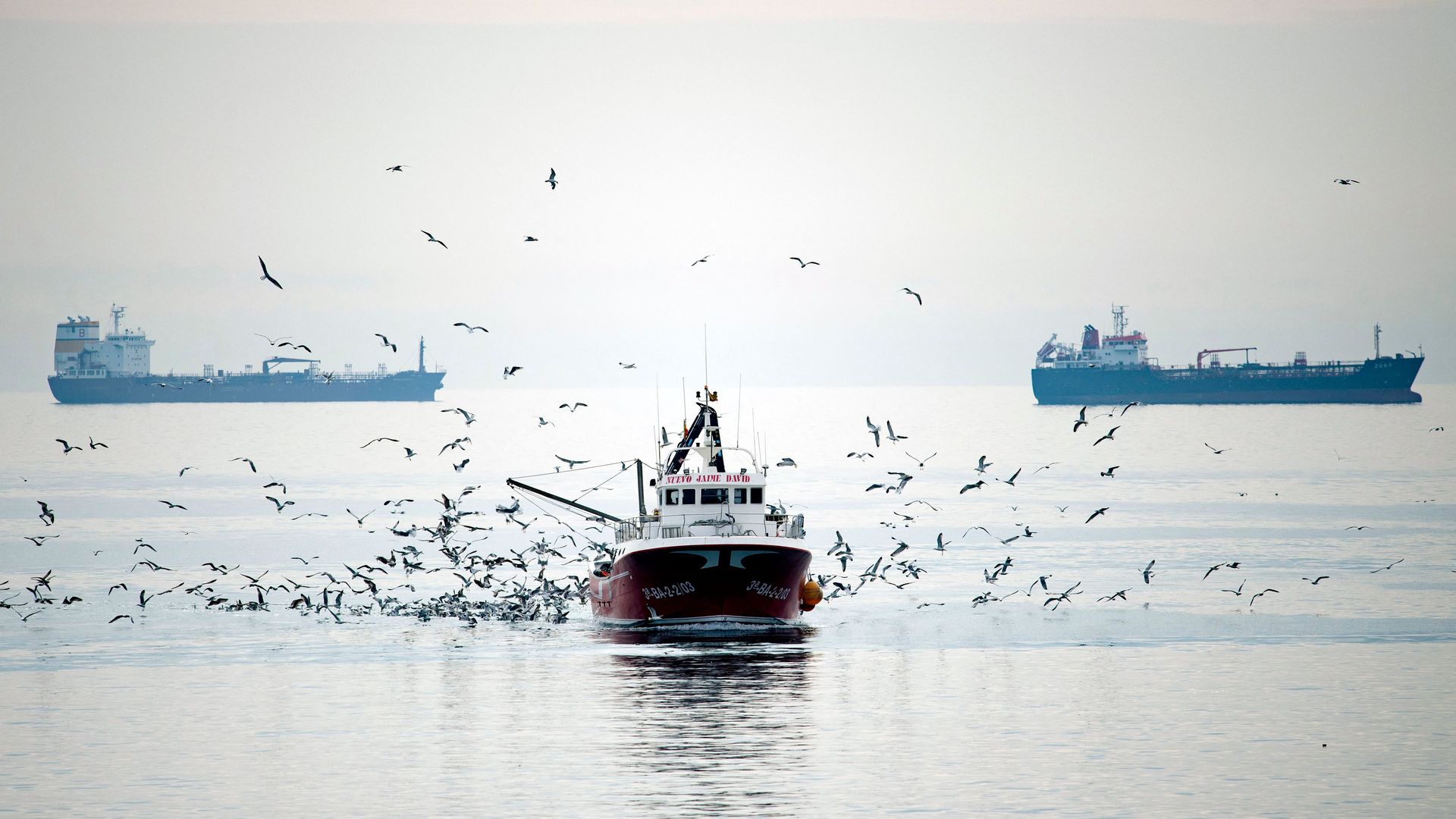 | | | A fishing boat comes into port in Barcelona. Photo: Josep Lago/AFP via Getty Images | | | - Global COVID death toll tops 6 million.
- Russia's economy: Economic warfare's collateral damage; Bond default risk; Visa, Mastercard, and AmEx suspend operations.
- State Department pushes Ukraine to free U.S. detainees in Kyiv.
- Amazon struggling to recover.
- Suicide bomber kills dozens at mosque in Pakistan.
- Fan riot leads to suspension of Mexican soccer league.
- Basketball Africa League starts first season without a bubble.
Quoted: "I'm not hiding, and I'm not afraid of anyone." — Zelensky in his latest address, filmed tonight from his office. |     | | | | | | A message from Axios | | Win the race for (remote) talent | | |  | | | | Reach over 750,000 smart professionals in the fastest growing cities in America. Axios Local now has job boards to get your openings in front of qualified candidates. Post your job opportunities on Axios Local. | | | | Answers: 1. New York. 2. London. 3. Paris. 4. Tokyo. 5. Berlin. 6. Ruhrgebiet (Cologne and surrounding cities). 7. Chicago. 8. Manchester. 9. Philadelphia. 10. Buenos Aires. A. Tokyo. B. Delhi. C. Shanghai. D. São Paulo. E. Mexico City. F. Cairo. G. Mumbai. H. Beijing. I. Dhaka. J. Osaka. |  | It's called Smart Brevity®. Over 200 orgs use it — in a tool called Axios HQ — to drive productivity with clearer workplace communications. | | | | | | Axios thanks our partners for supporting our newsletters. If you're interested in advertising, learn more here.
Sponsorship has no influence on editorial content. Axios, 3100 Clarendon Blvd, Suite 1300, Arlington VA 22201 | | | You received this email because you signed up for newsletters from Axios.
Change your preferences or unsubscribe here. | | | Was this email forwarded to you?
Sign up now to get Axios in your inbox. | | | | Follow Axios on social media:    | | | | | |







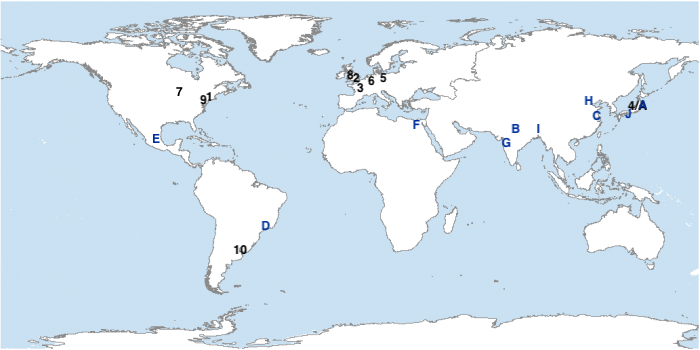





No comments:
Post a Comment